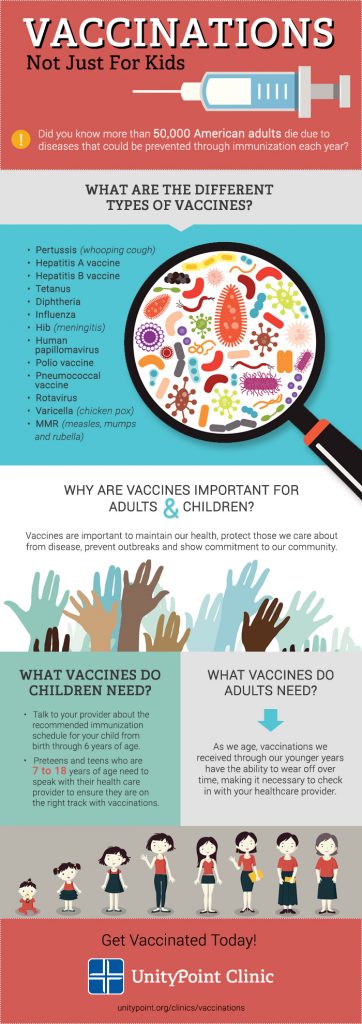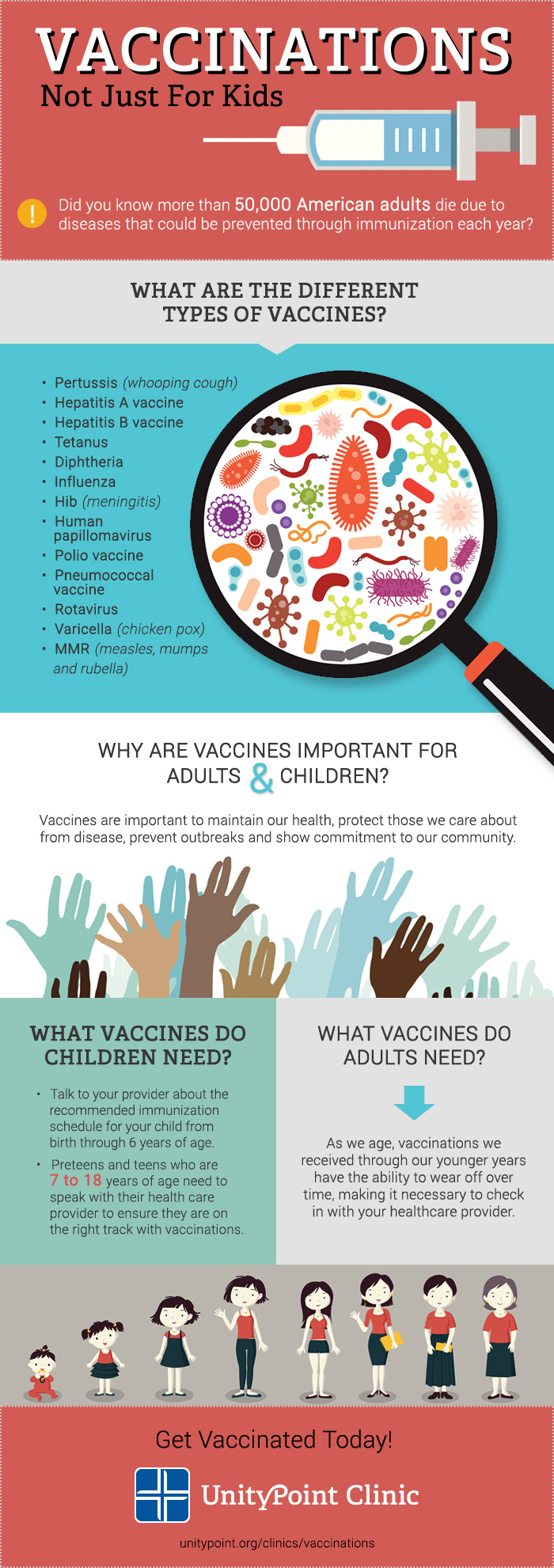By: Zoreed Mukhtar
2019—2020 Global Health Policy Coordinator & Health Care for All Steering Committee Member

As a child growing up in the 1990’s, no one really talked about getting vaccinated; it was just a routine part of a doctor’s visit. As science and technology have progressed, children around the world have been getting vaccinated more than ever, and two diseases have been eradicated worldwide: smallpox and rinderpest, which infects cattle. In the United States, even more diseases have been nearly eradicated such as bacterial influenza, diphtheria, measles, mumps, rubella, and tetanus. Yet now, it is almost impossible to publicly speak about immunizations, without sparking a debate. Vaccines have become an increasingly controversial topic, especially in the political sphere.
In an interview on Fox News in 2011, Michele Bachmann, a former republican congresswoman from Minnesota, criticized the HPV vaccine, proclaiming, “There’s a woman who came up crying to me tonight after the debate. She said her daughter was given that vaccine. She told me her daughter suffered mental retardation as a result of that vaccine. There are very dangerous consequences.” Similarly, during his 2016 presidential bid, republican senator from Kentucky, Rand Paul, declared, “I’ve heard of many tragic cases of walking, talking, normal children who wound up with profound mental disorders after vaccines.” This was a shocking statement, considering in addition to being a politician, Paul is also a physician, who graduated from Duke University School of Medicine and completed his residency in ophthalmology. These quotes spread fear-mongering among voters and resulted in concerned parents being reluctant or refusing to immunize their children.
Soon after, this country saw the rise of the anti-vaccine movement, which is identified as a major global health threat by the World Health Organization (WHO). Websites supporting this movement claim that there is a link between vaccines and autism, and promote conspiracy theories, misinformation, and myths linking the two. Many parents believe that vaccine overload (administering more than one vaccine at the same time) can weaken the immune system and have adverse effects, and that ingredients in some immunizations such as thiomersal, aluminum, or formaldehyde can lead to autism.
Nevertheless, arguments against vaccination are contradicted by healthcare professionals. There is consensus among the scientific community that vaccine ingredients do not cause autism, administering more than one vaccine does not weaken a child’s immune system, and there is no direct or causal relationship between vaccines and autism. Organizations such as the American Medical Association (AMA), American Academy of Pediatrics (AAP), American Public Health Association (APHA), and the U.S. Department of Education support immunization information systems, which are confidential computerized databases that record the immunization doses administered within a given area. Furthermore, according to the Centers for Disease Control and Prevention (CDC), only children with severe, life-threatening allergies or certain medical conditions, such as a weakened immune system or Guillain-Barre Syndrome, should be permitted to skip inoculations.
According to WHO/UNICEF and the United Nations (UN), vaccines are one of the most cost-effective public health interventions, preventing 2-3 million deaths per year. Although the majority of children in the United States have access to immunizations, healthcare disparities still exist globally, with many countries unable to meet the demands of their growing populations and millions of children not having access to potentially life-saving immunizations. For example, the percentage of children worldwide who received the DTP vaccine (diphtheria, tetanus, and pertussis) is used as an indicator to determine how well countries provide routine immunization services. Over the last three years, 116 million children received the DTP vaccine, with 112 countries sustaining at least 90% coverage of the DTP vaccine. However, countries such as Central African Republic, Chad, Equatorial Guinea, Guinea, Samoa, Somalia, South Sudan, Syrian Arab Republic, and Ukraine have less than 50% coverage of the DTP vaccine. Also, Afghanistan, Nigeria, and Pakistan are the three remaining polio endemic countries left in the world. Factors including military conflict, vaccine stock-outs, disease outbreak, under-investment in vaccine programs, and organizational problems contribute to vaccine coverage disparities in these countries. Having a more comprehensive disease prevention strategy and strengthening immunization programs to focus on vulnerable populations such as those who are homeless, incarcerated, have low-income, or children who have missed their vaccines, can help close the immunization gap.
So, are vaccines a necessity to protect the public health, safety, and welfare of our future generations? Among the evidence-based medicine, pseudoscience, and publicized debates, you decide.
For more information: https://www.unicef.org/immunization
How you can help: https://www.unicef.org/take-action
References
Centers for Disease Control and Prevention. (2017, March 17). FastStats – immunization. Retrieved November 19, 2019, from https://www.cdc.gov/nchs/fastats/immunize.htm.
Centers for Disease Control and Prevention. (2019, August 15). Who should not get vaccinated? Retrieved November 19, 2019, from https://www.cdc.gov/vaccines/vpd/should-not-vacc.html.
Every Child by Two / Vaccinate Your Family. (2018). Outbreaks of vaccine-preventable diseases. Retrieved November 19, 2019, from https://www.vaccinateyourfamily.org/questions-about-vaccines/outbreaks-of-vaccine-preventable-diseases/.
Farley, R. (2011, September 14). An antidote for Bachmann’s anecdote. Retrieved November 19, 2019, from https://www.factcheck.org/2011/09/an-antidote-for-bachmanns-anecdote/.
Lopez, G. (2016, August 25). What diseases have vaccines eradicated? Retrieved November 19, 2019, from https://www.vox.com/2018/8/21/17588074/vaccines-diseases-wiped-out.
Rosenfeld, E. (2015, February 3). Rand Paul clarifies his stance on vaccines. Retrieved November 19, 2019, from https://www.cnbc.com/2015/02/03/rand-paul-issues-statement-supporting-vaccines.html.
UNICEF. (2019, July). Vaccination and immunization statistics. Retrieved November 19, 2019, from https://data.unicef.org/topic/child-health/immunization/.
World Health Organization. (2019). Ten health issues WHO will tackle this year. Retrieved November 19, 2019, from https://www.who.int/emergencies/ten-threats-to-global-health-in-2019.

